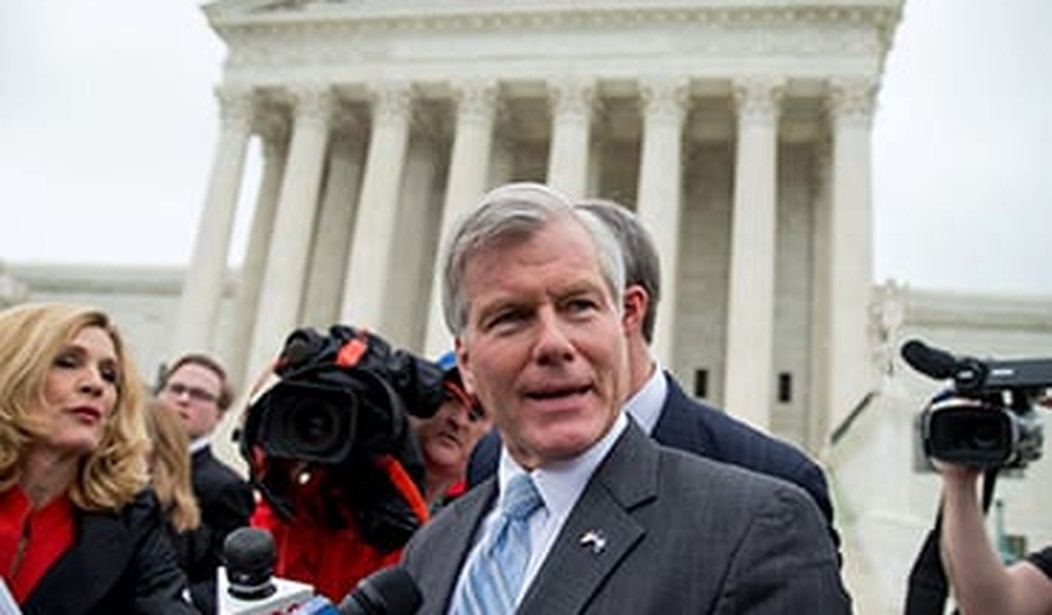You heard it hear first on Ordered Liberty … though it’s one I’d much rather have been wrong about.
The Justice Department announced today that it is dropping corruption charges against former Virginia governor Bob McDonnell. (See the Washington Times report, here.) McDonnell clearly used his influence to open doors and not-so-subtly pressure other officials on behalf of a donor who lavished thousands of dollars in gifts and loans to the then-governor and his wife. The donor was trying to persuade Virginia’s public universities to perform research studies needed before he could market a nutritional supplement. The Supreme Court vacated McDonnell’s convictions, reasoning that the evidence, though unsavory, was insufficient to establish a prosecutable case of bribery and corruption.
As we discussed here a few weeks back, the justices have sent a distinct message that the courts are not going to root out public corruption – if Americans want that done (and there’s good reason to question whether much of the country cares anymore), then we will have to do it ourselves, at the ballot box. In the column on August 15, I put it this way:
There are reasons good, bad, and obvious for the difficulties these corruption cases pose for prosecutors. To start with the obvious, the statutes are written by the politicians against whom they will be applied, so there is a certain built-in looseness in the joints. While some of that is cynical, there is also some justification in constitutional and policy considerations.
In representative government, elected officials are supposed to be influenced by the concerns of constituents, and voters must be free to provide financial and other support to the candidates who will fight for their concerns if elected. It is challenging to write laws targeting corrupt pay-to-play arrangements without sweeping in legitimate campaign support and representative government. If the laws we have are too expansively construed, we come dangerously close to what the framers sought to avoid: an executive branch check against legislative efforts that reflect legitimate concerns of citizens.
Of course, if the laws are too narrowly construed, you end up with what we see in the McDonnell case: a free pass given to palpable (albeit ultimately unsuccessful) bribery — which signals to elected officials that they can shake down constituents and push the agendas of well-paying insiders with impunity.
That is everything that everyone claims to hate about Washington. But here’s the thing: We keep sending the same people there over and over again — now, even appearing poised to elect to the nation’s highest office Mrs. Clinton, whose only known accomplishment is the raising of pay-to-play, wheeler-dealer government to an art form.
The Supreme Court, in the McDonnell case as in the Obamacare cases, seems to be conveying a blunt political message clothed in legal parlance: “If you, the American people, do not want corrupt public officials and ruinous public policy, stop voting for them. Don’t expect us judges to do your heavy lifting for you.”
Concededly, this message would be a lot easier to take if the courts were promoting liberty across the board rather than imposing elements of the “progressive” political program. Nevertheless, it is worth the look at the mirror. If someone as squalid as Hillary Clinton is a viable political candidate, that is not a failure of our legal system. It is a failure of our culture.









Join the conversation as a VIP Member